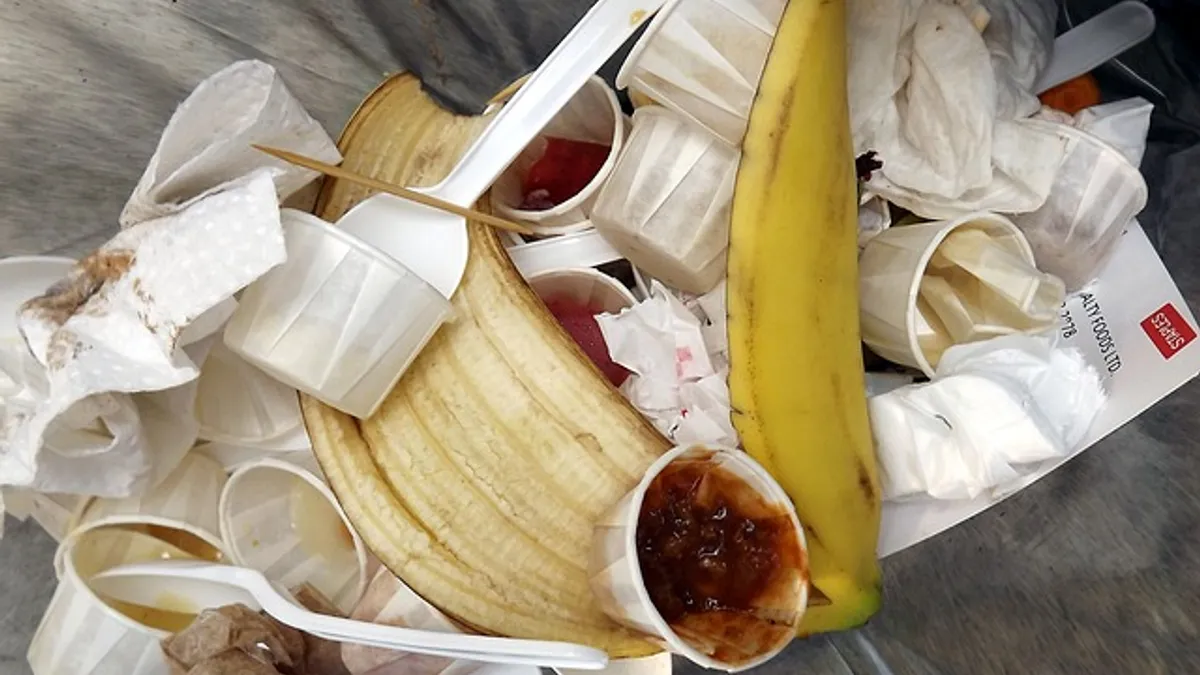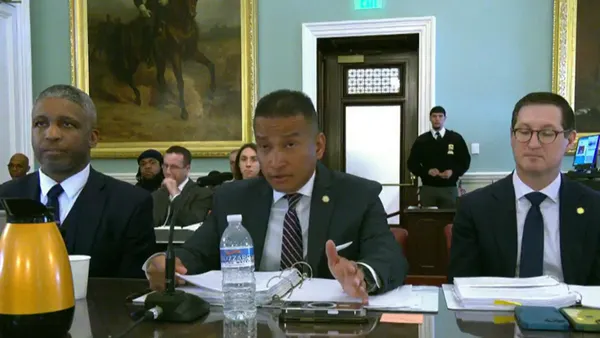Dive Brief:
- Boston-area organics hauler Save That Stuff (STS) has been taking heat over the past month for sending multiple loads of material from local restaurant chain Clover to a landfill rather than composting them.
- While Clover and other businesses have ended their business with STS, the hauler blames the issue on a lack of adequate options for processing compostable dishware in the region.
- STS had previously sent contaminated loads to WeCare Environmental for processing, but the two companies had a falling out last fall which seems to coincide with the change in practice.
Dive Insight:
Clover isn't required to divert its organic waste as part of Massachusetts' landfill ban, but has chosen to use compostable products anyway and worked with STS to develop a program. Yet STS now says it will focus solely on hauling material. In a blog post, the company's chief executive Adam Mitchell pointed to Portland, OR's decision to exclude all non-food items from its commercial organics program as a sign that the current system isn't working.
"In our industry, we find it increasingly challenging to find a processing outlet for the compostable dishware, utensils, and one-time use compostable cups," he wrote. "The consumer market for these items advanced far faster than the end-of-life processing outlets."
Front-of-house waste sorting is challenging and customers don't always know that items billed as compostable are may not be easy to process. Contamination is still a serious issue — as seen at Delaware's Peninsula composting facility which closed in 2014 — and industrial processing infrastructure varies from region to region. As cities continue to expand their organic diversion requirements for food service businesses, all involved should remain vigilant about what's being put into their waste streams and where it's going.














